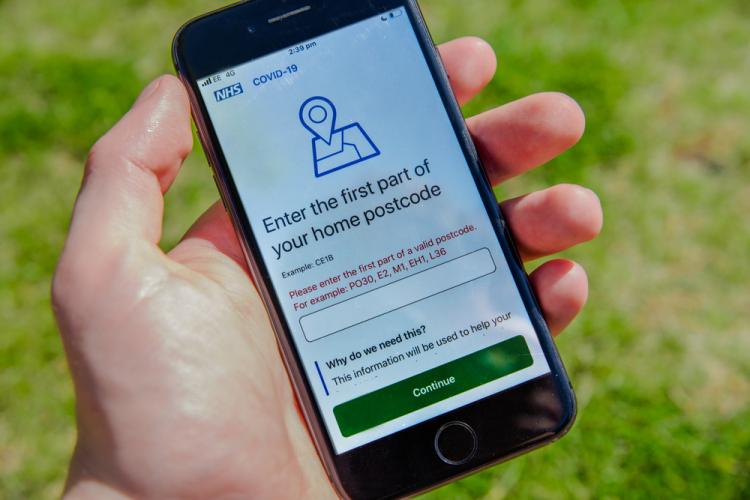PharmaLedger’s technology can help fix data privacy problems such as those raised by COVID19 contact tracing apps

This article is based on a feature that appeared on the website of PharmaLedger partner ROMSOFT. See the original article here.
Throughout the pandemic, COVID19 contract tracing apps have popped up all over the world. In a recent article, ROMSOFT, a partner in the Pharmaledger project that creates custom R&D software, used the project’s personal health data use case as a good example of how privacy concerns related to systems like tracing apps might be overcome, alongside artificial intelligence and machine learning.
A key advantage of storing data on a blockchain is that the data is immutable – meaning that the records it keeps cannot be changed or deleted. Another advantage is that there’s no central authority that controls access and storage. People are understandably wary of for-profit companies or governments having control over their data but with blockchain, rather than trusting a private company, a governmental department or any app developer with the keys to your data, you retain complete control. The keys are kept safe and secure with an impenetrable ‘ledger’ supported by a solid governance model.
The health-versus-privacy false dilemma
ROMSOFT picked out three different country-specific COVID19 tracing apps. In China, use of the tracing app was mandatory requirement, while Israel mandated but later walked back the decision, and France made it voluntary. What’s troubling, according to ROMSOFT’s Iulia Weingold, is that people had to make a choice between their health and their privacy. Why not both?
“Documenting the PharmaLedger project feels like being involved first hand in solving the privacy-health dilemma,” she says. The project partners are basing their mission on these basic rights: you are the rightful owner of your own data, and the only one who can give access to it. You have the freedom to save, share and access your own health data, you know how and when your data is being used, and you can change your mind – meaning you can revoke access to personal data at any time.
The article lists the three principles that govern the collection of private data: the first is about purpose; personal data collected should be used with the intended purpose and not to solely benefit third parties or centralised entities. Next is transparency; what data is being collected, why, and how long will it be kept? The third principle is decentralisation: never concentrate too much data in the same place.
“If we look at how data is collected right now, we realise that the largest amount of data is in the hands of a few big companies. There’s no transparency over how the data is being used. And it’s out of our control.”
Your own keys
PharmaLedger proposes a protocol called Open DSU, or open data sharing unit. This is a unit of data that is located off the chain, encrypted and only then directly anchored in the blockchains. This means that patients are in control of their confidential data via a digital wallet on their smartphones. Instead of managing your money, you manage the keys to your private data.
“The truth is, at the current time, our private medical data may be at risk if transferred over to consumer apps. Data should be self-sovereign,” the article concludes. “PharmaLedger is a platform that will enforce data self-sovereignty, and also will lower the cost of entry for any scientist or researcher who can make good use of that data in order to bring to the market an app or a product that will improve patient’s health. That is democratisation of data.”
“With a platform like PharmaLedger, any consumer app that will be built on top of it will follow the governance rules of the PharmaLedger platform, including the way data privacy is enforced. Enabling this type of ownership and providing information that is relevant, correct and easy to understand is essential in managing fear and increasing trust in data sharing.”
"Blockchain is a mechanism for sharing data in a consented manner, that allows secured storage and management," according to Xenia Betlan, who coordinates the PharmaLedger project. "In my view, sharing is about being able to store and further enable sharing, encouraging more connection and collaboration between sharing parts, which can result in important new findings or results."
Read more
Health or privacy, the false dilemma
PharmaLedger selects use cases to advance adoption of blockchain in healthcare
